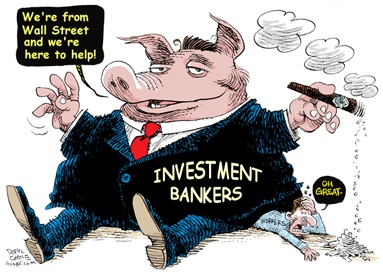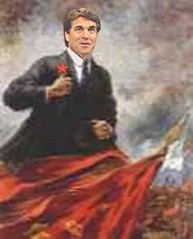North Texas Tollway Authority's no bid contracts with a select group of legal and engineering firms come under scrutiny
10/16/11
By Gordon Dickson
Fort Worth Star-Telegram
Copyright 2011
gdickson@star-telegram.com
PLANO -- This year, before being appointed chairman of the North Texas Tollway Authority, former Fort Worth Mayor Kenneth Barr disclosed that his brother worked for the Locke Lord law firm, which provides much of the authority's legal services.
Other board members wondered if there was a conflict of interest. Barr explained that he had already sought an opinion from the authority's legal counsel -- who also works for Locke Lord -- and together they had determined it was ethically safe for him to vote on issues involving the firm.
"My brother has never done anything related to NTTA and not benefited in any way," Barr said later in an interview. Barr explained that his brother, Andrew Barr, has a background in a entirely different area of business and criminal law.
But as the tollway authority, once a niche agency that managed a handful of toll projects in the Dallas area, has evolved into a major player throughout North Texas, the manner in which it conducts its business is being placed under a microscope.
An audit-style report scheduled to be made public Tuesday is expected to offer a scathing review of how the tollway authority handles its financial and organizational affairs.
It will likely look into what some area officials say is the authority's far too cozy relationship with a handful of legal, engineering and other firms that are paid tens of millions of dollars per year for their services without putting the work up for bid.
The authority's inability to hold onto a chief executive will also likely be explored in the report, commissioned by county judges in Tarrant, Denton, Dallas and Collin counties. NTTA Executive Director Allen Clemson, hired in mid-2009, sought to move swiftly to bring in new blood for engineering, legal and other contracts. But last week, Clemson abruptly resigned on the eve of the report being issued, saying he was doing so because the board was so unhappy with his performance that he expected to be fired.
The report also may talk about how board members should report conflicts of interest. County commissions in those four counties appoint eight NTTA tollway board members -- two each -- and a ninth member is appointed by the governor.
Barr's brother, Andrew Barr, stressed in an e-mail last week that he is "of counsel" with Locke Lord, meaning he isn't a partner and doesn't participate in the firm's profits. "Nor can any single client somehow indirectly influence what I'm paid," Andrew Barr said, noting that he is just one of about 660 attorneys with Locke Lord.
Kenneth Barr also has prior relationships with the Fort Worth lawyers hired to handle the right of way acquisitions for the Chisholm Trail Parkway, another NTTA project. Another board member, David Denison, has acknowledged having a financial stake in a firm with land in the parkway's path.
Many critics, including elected leaders, say the agency ought to be subject to a periodic state audit known as a sunset review to ensure that the motoring public's dollars and trust have not been compromised. During the next year, tollway authority officials estimate that their revenue will increase to $480 million and their debt to $9 billion.
"Too often, the public's business becomes private business," said state Rep. Lon Burnam, D-Fort Worth. "Sunset is a way for citizens to hold their agencies accountable."
Other state lawmakers say such a review could flag issues leading to the constant turnover in upper management.
"I'm looking for an analysis of their governance that helps explain why they've had five CEOs in five years," said state Rep. Rafael Anchia, D-Dallas, who serves on the Sunset Advisory Commission. "That speaks to a government entity with an institutional problem."
Cozy relationships
Officials who know what is included in the county judges' report, which is being paid for by the NTTA, are tight-lipped about its contents. The study, which includes one-on-one interviews with tollway board members and executive staff, is being prepared by Alvarez and Marsal, a corporate problem-solving firm.Tarrant County Judge Glen Whitley declined to discuss the report, saying he hadn't seen the final version, though he said the consultants had done a good job.
This month, Barr told fellow board members to be prepared to discuss the report at the authority's Plano headquarters Tuesday.
One of the areas the report may examine is how the tollway authority could save money -- perhaps millions of dollars a year -- by hiring its own engineers, lawyers and other professional staff, rather than relying on the handful of firms with which it has close ties.
For example, one of the relationships likely to be examined is with the HNTB engineering firm.
The firm shares a campus with the authority in Plano, and employees of either organization who want to confer about a project need only walk across the parking lot. HNTB is being paid about $15 million this year under the firm's contract with the tollway authority.
Another association likely to come under review is the authority's link to Locke Lord, which is being paid about $6.9 million this year for providing the agency with legal advice, according to tollway records.
Some recent changes at NTTA have created new layers of controversy. For example, tollway board members talked about the need to hire more minority-owned contractors, and took a step in that direction this year in hiring the law firm Newby Davis to provide legal services for right of way purchase on the Chisholm Trail Parkway project.
Newby Davis is a partnership between Brian Newby, an African-American lawyer who is Gov. Rick Perry's former chief of staff, and state Sen. Wendy Davis, D-Fort Worth. Newby and Davis are both lawyers with Fort Worth's Cantey Hanger firm.
Kenneth Barr keeps an office in Cantey Hanger's building on the west side of downtown Fort Worth.
In 2009, Barr, Newby and Cantey Hanger attorney David Chappell formed a partnership named Barr Newby Chappell Consulting, according to records at the secretary of state's office. Nearly two years later, when the tollway board voted unanimously to hire Newby Davis, Barr said it was an oversight that he didn't ask the tollway authority's legal counsel whether he should abstain because of his past relationship with Newby and Chappell.
He said he had forgotten about the 2009 partnership, which had been for a business opportunity that never materialized and was dissolved.
Davis, for her part, said she sees no conflict in doing legal work for the tollway authority, even though as a state senator she may be called upon to vote on matters where a connection -- however loose -- could be perceived. For example, the Legislature approves the budget for the Texas Department of Transportation, which is partnering with the tollway authority on the Chisholm Trail Parkway project and has committed $147 million to the project for connections to Interstate 30 in southwest Fort Worth and U.S. 67 in Cleburne.
"So long as the work is not related to any decisions I make in the Senate, there is no conflict," Davis said. "Together with the NTTA's goal of spreading work around Dallas-Fort Worth, and using minority-owned firms, Brian and I created a minority-owned law firm. There's absolutely no conflict whatsoever."
Land purchase
Another tollway board member, David Denison of Lewisville, came forward with a potential conflict issue in February. After the Star-Telegram reported the sale of a 625-acre tract of land straddling the planned Chisholm Trail Parkway right of way, the retired real estate investor disclosed that he had worked as an independent consultant and investor with one of the partners in the purchase, Stratford Land.
Stratford and Legacy Capital Partners bought the McPherson Ranch property, about five miles south of Hulen Mall, near where McPherson Boulevard is expected to intersect with the new toll road. Part of the property will be set aside for single-family homes, although retailers will likely also be drawn to the area once the toll road provides easy access, a Stratford official has said.
But, Denison wrote in a Feb. 11 memorandum to fellow board members and tollway staff: "There is no scenario under which that acquisition can result in any economic benefit to me."
Denison went on to explain that Stratford has several funds, each of which is managed independently, and that although he was an investor in three such funds, he had no involvement in the fund near Chisholm Trail Parkway.
Frank Stevenson, a Locke Lord attorney who has served as the tollway authority's chief legal counsel for many years, said the Denison situation proves that the tollway authority's internal conflict-of-interest rules can work.
"I'm at a loss as to what we should have done differently," he said, noting that Denison quickly brought the issue to the board and executive staff's attention and got a ruling before a potential conflict could arise. "It seems clear to me that, legally, this was the right answer."
Several other officials noted that other state commissions handle ethics differently by requiring officials to fill out annual financial disclosure forms so that staff members can help flag potential conflicts for appointees.
"I am by law and rule required to disclose a great deal," said Bill Meadows of Fort Worth, a Texas Transportation Commission member who also previously served on the tollway authority board. "This is a much more open agency than NTTA, in terms of what officials are required to disclose. We have an annual financial disclosure that covers real estate, relationships, employment and equity."
Barr cautioned board members not to expect the report to bring closure to the issues. Instead, he said it will be a starting point for the board members, who must figure out themselves how to rebuild the authority's management.
"This is not a road map. It's not so much telling us how to run NTTA as much as they'll be giving us suggestions," he said. "We will take those recommendations very seriously. We will not focus on the finger-pointing, but how to look forward to the future."
© 2011 Fort Worth Star-Telegram: www.star-telegram.com
To search TTC News Archives click
To view the Trans-Texas Corridor Blog click












